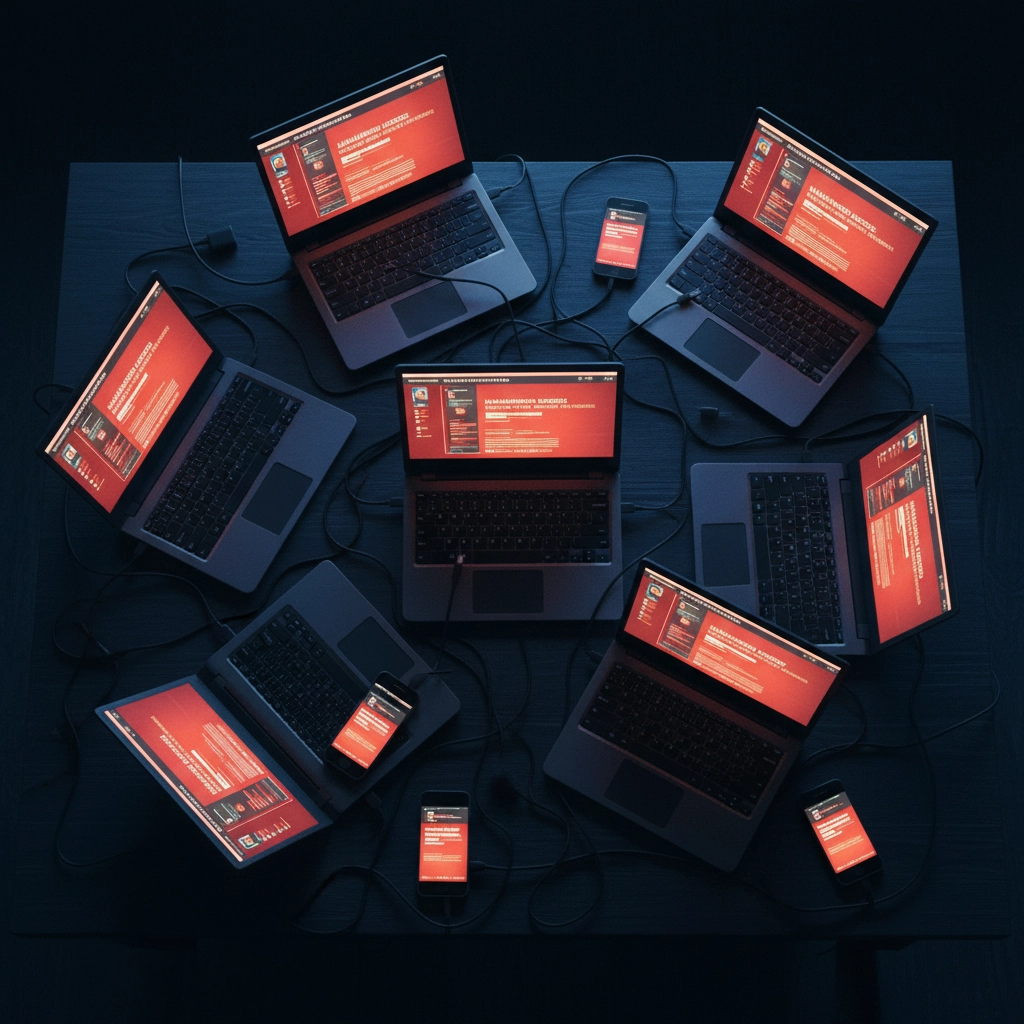The Australian Government’s cyber security watchdog just released some eye-opening numbers that every Australian should know about. The Annual Cyber Threat Report 2024-2025, published by the Australian Signals Directorate, reveals that cyber attacks are hitting closer to home than ever before: and they’re getting more expensive, more frequent, and more sophisticated.
If you think cyber crime only happens to big corporations or tech-savvy people, think again. The report shows that ordinary Australians and small businesses are increasingly in the crosshairs of cyber criminals and state-sponsored hackers. Here’s what you need to know in plain English.
The Numbers Don’t Lie: Australia Under Digital Attack
The statistics from the past year paint a sobering picture. Australians called the Australian Cyber Security Centre’s hotline over 42,500 times: that’s 116 calls every single day, representing a 16% jump from the previous year. Think of it this way: every six minutes, someone in Australia was reporting a cyber crime.
The Centre responded to more than 1,200 serious cyber security incidents, an 11% increase from 2023-24. But here’s the most concerning part: they had to notify Australian organisations more than 1,700 times about potentially malicious cyber activity targeting them: an 83% increase from the previous year.
What does this mean for your wallet? The average Australian who falls victim to cyber crime now loses $33,000 per incident, up 8% from last year. For small businesses, that figure jumps to $56,600 per incident, while large organisations are bleeding an average of $202,691 each time they’re hit.
What Individual Australians Are Facing
If you’re an everyday Australian, the three biggest cyber threats you’re likely to encounter are identity fraud, online shopping scams, and online banking fraud. These aren’t sophisticated attacks requiring advanced technical knowledge: they’re designed to trick regular people going about their daily online activities.
Think about your home for a moment. The average Australian household now has more than a dozen internet-connected devices: smartphones, tablets, smart TVs, gaming consoles, smart doorbells, and more. Each of these devices is potentially a gateway for cyber criminals to access your personal information.
The most common way criminals try to reach you is through phishing: fake emails, texts, or websites designed to steal your personal information. These have become incredibly sophisticated, often looking identical to legitimate communications from your bank, Australia Post, or other trusted organisations.
Small Business Owners: You’re in the Crosshairs
If you run a small or medium business, you need to pay attention. Cyber criminals have figured out that small businesses often have valuable data but fewer security resources than large corporations, making them attractive targets.
Ransomware remains the biggest business disruptor. This is when criminals lock up your computer systems and demand payment to restore access. Imagine not being able to access your customer database, invoicing system, or any digital records until you pay a ransom: that’s the reality many Australian businesses faced this year.
Business Email Compromise attacks have also surged. This is when criminals hack into business email accounts and trick employees or customers into sending money or sensitive information. What’s particularly concerning is that 75% of these attacks successfully bypassed multi-factor authentication, which many businesses thought would keep them safe.
Distributed Denial of Service (DDoS) attacks: where criminals overwhelm websites with fake traffic until they crash: jumped by more than 280% this year. Healthcare emerged as the most targeted sector, followed by financial services.
State-Sponsored Threats: When Foreign Governments Get Involved
Now, this might sound like something from a spy movie, but state-sponsored cyber threats are very real and affecting Australian organisations. These are cyber attacks carried out by or on behalf of foreign governments, typically to steal sensitive information, disrupt services, or gain strategic advantages.
Unlike cyber criminals who are motivated by quick financial gain, state-sponsored hackers play the long game. They might infiltrate a network and quietly steal information for over 400 days before being detected: that’s more than a year of undetected access to sensitive data.
These actors often target government networks, critical infrastructure like power grids and hospitals, and businesses that hold valuable intellectual property or strategic information. The goal isn’t necessarily to cause immediate disruption, but to gather intelligence or position themselves to cause problems if international tensions escalate.
The AI Revolution: A Double-Edged Sword
Artificial intelligence is making cyber attacks more sophisticated and harder to detect. Criminals are using AI to create more convincing phishing emails, generate fake voices for phone scams, and automate attacks at unprecedented scales.
At the same time, the rise of AI tools in businesses has created new vulnerabilities. Employees might inadvertently share sensitive company information with AI chatbots, or businesses might integrate AI tools without properly securing them.
Legacy Systems: The Ticking Time Bomb
Here’s something that affects almost every Australian business: outdated computer systems. The report’s release coincided with Microsoft ending support for Windows 10, highlighting a critical problem. Once software companies stop providing security updates, those systems become sitting ducks for cyber criminals.
Think of it like leaving your house key under a doormat that everyone knows about. Vulnerabilities in unsupported systems become public knowledge, giving criminals a roadmap for breaking in.
What You Can Do: Simple Steps That Work
The good news is that most cyber attacks can be prevented with basic security measures. You don’t need to become a cyber security expert: just follow these practical steps:
For Everyone:
- Use strong, unique passwords for each account and consider a password manager
- Enable multi-factor authentication wherever possible
- Keep your devices and software updated
- Be suspicious of unexpected emails, texts, or phone calls asking for personal information
- Backup your important data regularly
For Business Owners:
- Develop a response plan for cyber incidents before you need it
- Train your employees to recognise and report suspicious activity
- Regularly update and patch all business systems
- Consider cyber insurance
- Limit who has access to sensitive business information
Getting Help: You’re Not Alone
If you’re feeling overwhelmed, remember that help is available. The Australian Government provides free resources through cyber.gov.au, and you can report cyber crimes or get advice by calling 1300 CYBER1 (1300 292 371).
The key is not to panic, but to take action. Simple cyber security measures are highly effective against most attacks. You don’t need expensive, complex solutions: you need consistent, basic security practices.
How Cloud Computer Company Can Help
For local businesses looking to strengthen their cyber defences, Cloud Computer Company offers practical cyber security solutions tailored to Australian small and medium enterprises. From managed IT services that keep your systems updated and secure, to Google Workspace security checkups that ensure your business communications are protected, we help local businesses implement the practical cyber resilience steps outlined in the government report.
The 2024-2025 Annual Cyber Threat Report makes one thing clear: cyber security isn’t just an IT problem: it’s everyone’s responsibility. By taking simple, consistent security measures and staying informed about current threats, we can all contribute to a safer digital Australia.
The threats are real and growing, but so are the tools and knowledge available to protect ourselves. Stay vigilant, stay informed, and remember that effective cyber security starts with the basics.



